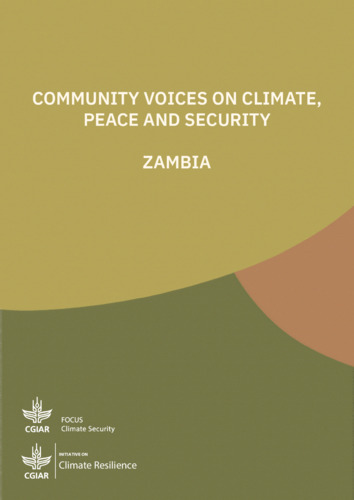Community voices on climate, peace and security: Zambia
This Community Voices on Climate, Peace and Security series report, under CGIAR’s Climate Resilience Initiative, presents the results of a participatory appraisal conducted with residents of two localities across Zambia’s Southern Province. Participants are Tonga farmers and herders hailing from the Muchila ward in Namwala district, and the Lusitu ward in Chirundu district. Based on the qualitative analysis of data gathered through focus group discussions with community members in each locations, we identified four main causal pathways through which the effects of climate change compound to processes of conflict and instability. These pathways are all characterised by the highly influential role of political and cultural institutions, along with economic structures, that perpetuate climate vulnerability and grievances between societal actors. Furthermore, the management of natural resources and the protection of livelihoods as climate adaptation efforts can indeed be the source of cooperation across conflictive groups, thereby helping to build resilient institutions that can moderate the negative disruptive impacts of conflict, while fostering constructive outcomes. Participants in this study came up with actionable proposals which mostly rely on their own collective action, but require support from surrounding policy systems and the international community for their implementation.

